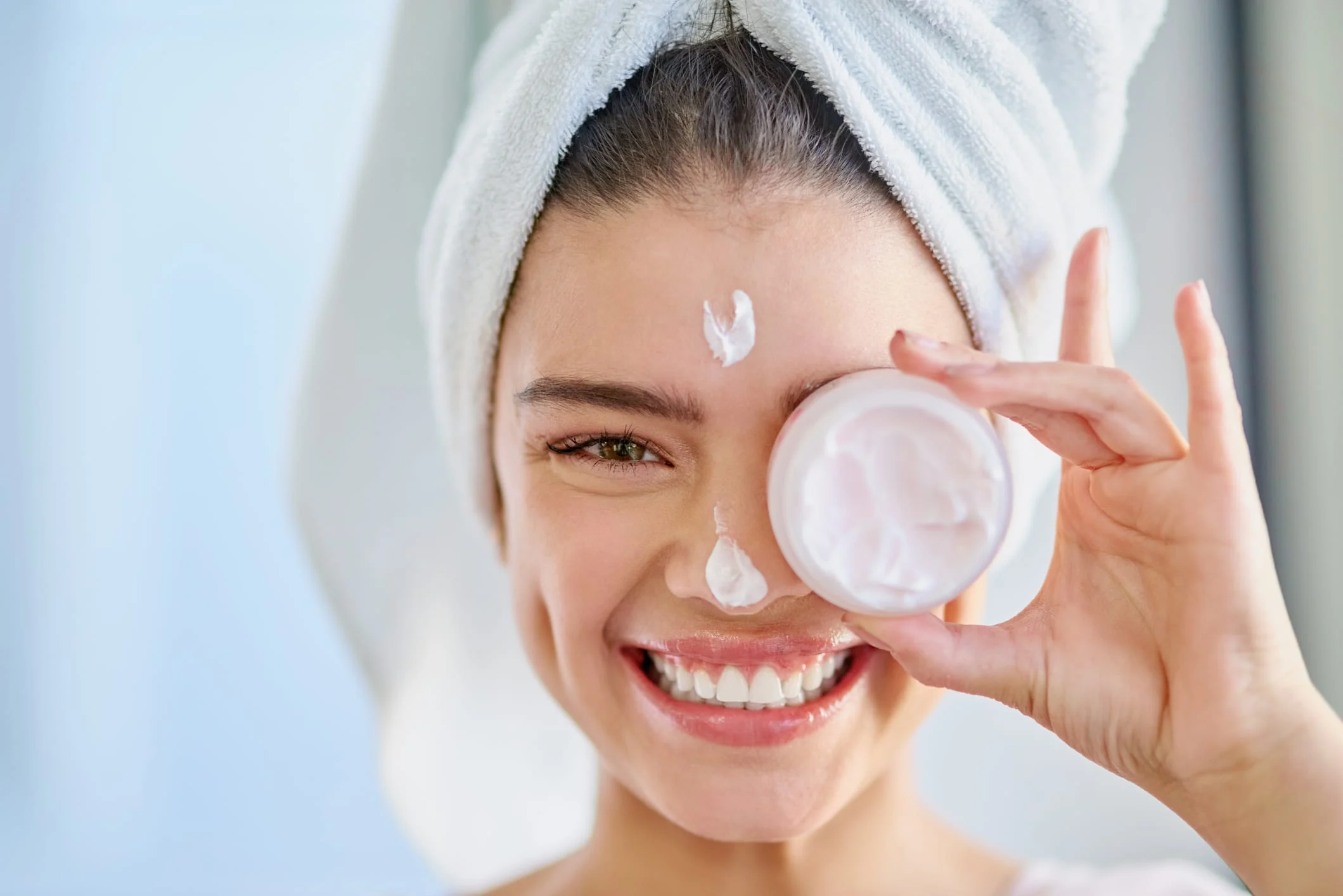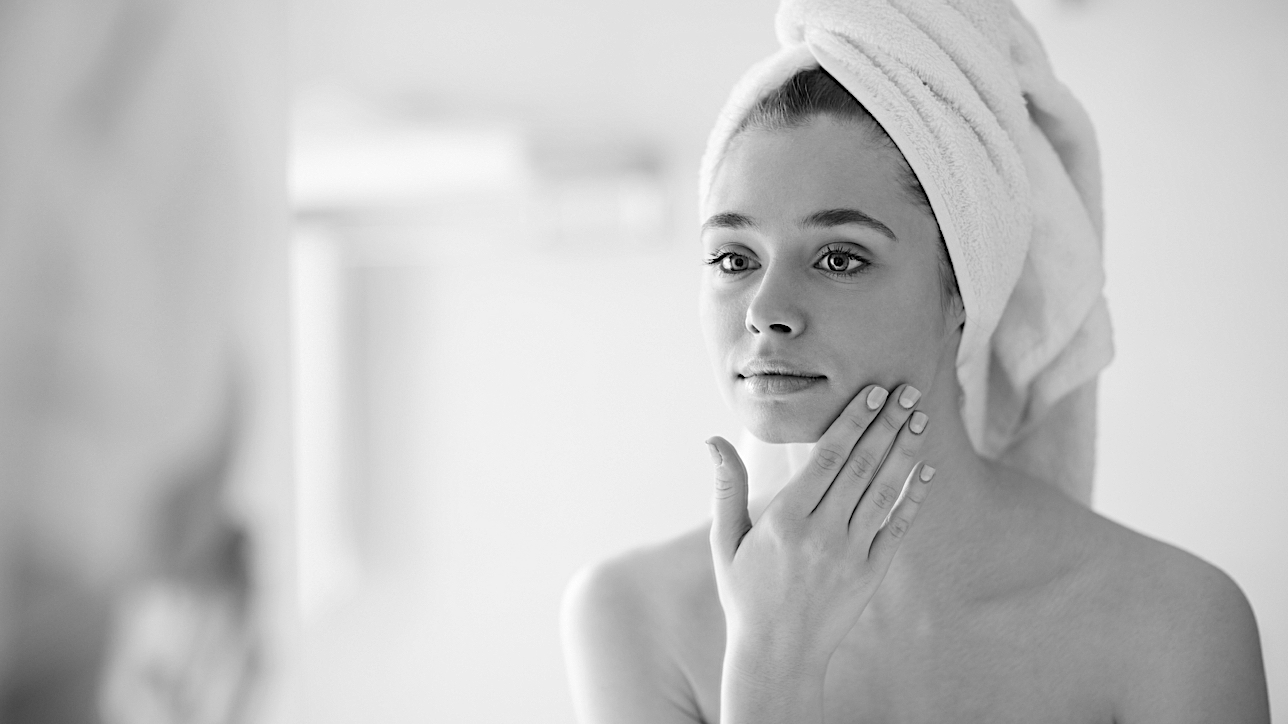The Ultimate Guide to Skincare: Morning vs. Night Routines
Skincare is an integral part of everyday health and wellness. It not only makes us look better but it also protects our skin the biggest organ in our bodies. Skincare routines can help stop the visible signs of aging treat skin problems and boost confidence by making the face look its best. Cosmetics are essential because they protect the skin from harmful things. Likewise pollution UV rays and germs keep the skin's protective barrier. Regarding effective beauty routines morning and evening routines are often very different. Each one is designed to provide different healing and protection benefits.
Routines in the morning and at night are essential for keeping your face healthy and they work together to make a complete skincare plan. Whether you use these customized habits to hydrate protect or slow down the aging process. But doing them regularly will help your skin keep its youthful glow and ability to fight off outside influences. Also several anti-aging skincare tips help to make your skin look youthful. To learn about the daily skincare regimen continue to read the blog.
How to Identify Skin Types?
Understanding your skin type is vital for choosing the right skincare products. Here's how you can identify whether your skin is normal oily dry combination or sensitive:
Normal Skin
- Characteristics: Feels smooth and is usually well-balanced in terms of oiliness and dryness.
- How to Identify: Your skin doesn't feel greasy or tight and generally looks even in tone and texture without frequent breakouts or flakiness.
Oily Skin
- Characteristics: Looks shiny and may feel greasy throughout the day.
- How to Identify: You notice large pores and are prone to acne and blackheads especially in the T-zone (forehead nose and chin).
Dry Skin
- Characteristics: Often feels tight and may have flakiness or rough texture patches.
- How to Identify: Your skin absorbs moisturizers quickly and might look dull due to lack of moisture. It rarely feels oily.
Combination Skin
- Characteristics: It is a type of skin that mixes oily and dry areas. Typically the T-zone is oily while the cheeks jawline and places around the eyes are dry.
- How to Identify: You might need different skincare products for other areas—for example heavier moisturizers for dry areas and lighter products for oily areas.
Sensitive Skin
- Characteristics: Reacts quickly to certain skincare products or environmental factors causing redness itching or burning.
- How to Identify: Your skin might have red rash-like or irritated areas. It often feels uncomfortable with certain products or temperature changes.
Knowing your skin type helps you make smarter choices about what products to use and how to care for your skin effectively. Consider talking to a dermatologist if you need help determining your skin type. They can give you professional advice. By knowing your skin type you can quickly decide on your daily skincare regimen.
Both Routines in Brief:
Skincare morning routines are meant to prepare the face for the day and keep it safe. Cleaning bathing and sunscreen are all everyday things to do in the morning. Cleaning your face in the morning is essential because it removes any oils or dirt on your skin overnight. Putting on a moisturizer after this helps keep the skin hydrated and strengthens its protection function. Most importantly you must put on sunscreen every morning to protect your skin from UV rays which can age your skin faster and raise your risk of skin cancer.
At night on the other hand skin care routines focus on healing any damage the skin may have gotten during the day and feeding it while the body sleeps. Products that are thicker and better at healing like night creams serums and eye creams are often used at night. These products usually have anti-aging ingredients like retinoids and peptides that work overtime to smooth out skin and lessen fine lines. It's essential to clean your face before bed to remove makeup and other impurities that could cause discomfort and breakouts. Night Skincare essentials also help with anti-aging skincare techniques.
Why Does the Order of Your Skincare Matter?

The order in which you apply your skincare routines matters the most. It ensures that the skin receives maximum benefit from each product you use. Here are the reasons why following the order matters the most: Skincare products are formulated to penetrate the skin in specific ways. If you don't apply them in the correct order you might prevent some products from being fully absorbed. This means you won't get the full benefit from the ingredients when using the skin care order in the wrong manner.
Some products work best when applied directly to clean skin. For example toners prepare the skin for moisturizers and serums typically packed with active ingredients must be close to the skin to be effective.
If you apply products in the wrong order they can cause skin irritation. For instance applying a cream before a serum could block the serum's ingredients from penetrating the skin potentially wasting the product and not achieving the desired skin improvement.
Morning Skincare Routine
- Cleansing: Begin your day by using a gentle cleanser. This first step washes away any dirt or oil that gathered on your face while you were sleeping. Starting with a clean face ensures that any products you use afterward will work effectively.
- Toning: Next apply a toner. This step helps balance your skin's pH and tightens your pores making your skin feel refreshed and prepared for the next steps.
- Serums: Using a serum especially one with antioxidants like Vitamin C is beneficial in the morning. Antioxidants shield your skin from the daily environmental stressors such as pollution and sunlight.
- Moisturizing: Moisturizer is essential because it keeps your skin hydrated and protects it from outside pollutants. Even if your skin is oily don't skip this step. Clean skin is healthy skin.
Protection from the sun: Finally put on sunscreen. This is probably the most important thing you need to do in the morning. Sunscreen blocks both UVA and UVB rays keeping you from getting sunburned and causing long-term damage like aging faster than you should.
Morning Beauty Tips
If you do these things your face will stay healthy and glowing all day.
- Choosing Products: When selecting skincare products consider your skin type. People with thick skin might like oil-free and non-comedogenic products which means they don't clog pores. Find things that can make your dry skin more wet. If you have mixed skin you might need to use different things on different parts of your face. Those with sensitive skin should choose products formulated to avoid irritating.
- Using Lighter Formulas: Opt for lighter skincare formulas during the day. Heavier more affluent products are usually better when your face is in repair mode at night. When you wear lighter makeup the products you use on your face won't feel heavy or greasy during the day.
- Allowing Product Absorption: After applying each product give it time to absorb into your skin before moving on to the next step. This ensures that each product is effective and prevents pilling (when products roll off your skin in little balls) when you apply makeup.
Night Skincare Routine
- Cleansing: The first step in your nighttime routine should be a thorough cleansing. This is essential because it gets rid of the dirt and makeup that have built up on your skin during the day. Starting with a clean face ensures that any treatments or moisturizers you apply afterward can be fully absorbed and more effective.
- Scrub: After every shower or bath gently scrub your skin a few times a week. Get rid of dead skin cells and let new ones grow. This keeps your skin smooth and looking brand new. Being gentle will help you keep your skin from getting hurt.
- Skin care and serums: The best time to use serums with strong ingredients like retinoids and peptides is at night. These ingredients help smooth out the face and make wrinkles less noticeable. Hydrating serums can also be helpful because they repair and moisturize your face deeply while you sleep.
- Night Cream: Use a thicker night cream to keep your skin moist overnight for deep nourishment and repair. Night creams are more prosperous in texture and are designed to hydrate and support skin regeneration as you sleep.
- Eye Cream: As part of your night skincare routine remember to apply eye cream. Eye creams can help with specific problems like dark circles and puffiness making you look more rested when you wake up.
Night Skincare Essentials
- Product Recommendations: Look for products that support cell regeneration and have anti-aging benefits. Hyaluronic acid ceramides and vitamins are some of the best ingredients for keeping your skin looking young and healthy.
- Stay away from comedogenic products: It is especially important to avoid heavy comedogenic (pore-clogging) items at night. These can make your skin break out so don't let it breathe; heal overnight.
- Relaxing Pre-Sleep Ritual: Create a calming skincare ritual before bed. In this case you might want to dim the lights play soft music or use scents like lavender. When you do something relaxing daily your body will know it's time to rest. This will help you sleep better and make your skin care products work better.
Goals Of Daily Skincare Regimen

We must wash and care for our faces daily to keep them clean and healthy. Regarding skincare it's essential to know that what we do in the morning and at night may serve different reasons. When you do your skincare in the morning your main goal is to protect your skin; when you do it at night your main goal is to fix it.
Taking care of your face in the morning should prepare it for the day. This means keeping your skin safe from the sun pollution and other things in the surroundings that can hurt it. Many morning skin care tips stress the importance of protecting skin from UV rays with sunscreen. Many people use vitamin C and other antioxidants in the morning because they protect the skin by eliminating free radicals. Free radicals can damage cells and speed up the aging process.
The goal changes from defense to repair at night. During the day many things that are bad for your face can get to it. Essentials for nighttime skincare include items that help the face heal and look younger while you sleep. This means using creams serums and richer products containing ingredients like retinoids and peptides known to slow down the aging process. These ingredients work well at night because they help the body make more collagen and turn dead skin cells into new ones. Doing this will help your face stay strong and look young always.
Getting used to the skin's 24-hour cycle
The natural cycle of changes that our skin goes through in a 24-hour time is called the circadian rhythm. Like how we have a sleep-wake cycle our skin has a cycle of steps that protect and heal it. It's essential to change your skincare routine to fit this pace. For example because your skin loses more water at night putting on a heavier moisturizer can help keep it wet. During the day lighter formulas are better because they protect the face without making it feel heavy.
Knowing these differences and ensuring that your daily skincare routine fits your skin's natural rhythm can make your skincare efforts much more effective. Every step from protecting your skin from the sun in the morning to moisturizing treatments at night is essential for keeping your skin healthy and looking good.
Additional Tips for a Holistic Skin Care Approach
Taking care of your skin requires more than just applying products. Your lifestyle choices play a huge role in keeping your skin healthy. Here are some expert tips beyond typical skincare routines focusing on diet hydration sleep and managing stress.
Lifestyle Choices Impacting Skin Health
Diet: Your face will look better if you eat a balanced diet full of fruits vegetables and healthy fats. Flavonoid-rich foods like nuts spinach and berries help keep your skin healthy.
- Hydration: Drinking plenty of water daily helps keep your skin hydrated and radiant. Drink eight glasses of water daily to get rid of waste and keep your skin cells healthy.
- Sleep: Getting enough sleep is very important for healthy skin. Your face heals from the stress of the day while you sleep. Aim for 7 to 9 hours of sound sleep every night so that your face can heal properly.
How to Deal with Stress and How It Affects Skin
Having acne eczema or rosacea can be caused by stress. It causes your body to make more chemicals like cortisol making your skin oilier and less able to fight germs.
- Work out regularly: Being active can help you feel less stressed be healthier overall and have better skin.
- Practice Relaxation Techniques: Activities like yoga meditation or even reading a book can decrease stress and help your skin stay clear and calm.
- Connect with Others: Spending time with friends and family or participating in social activities reduces stress.
Incorporating these holistic tips into your daily life can enhance your skincare regimen and improve overall skin health. It's not just what you put on your skin but how you care for your body that contributes to a radiant complexion.
Conclusion
These skincare routines help your skin to be clean and hydrated. Also it will protect your skin from the elements found in the air. In Simple terms your morning routine must include a cleanser moisturizer and sunscreen Whereas the night skincare essentials are cleanser and moisturizer. You can also add other products like serums retinol oils and toners to serve your skin. Understanding your skin type sets the stage for your skincare success! A daily skincare routine does more than just take care of your face. But also leading towards a deeper connection to your skin.
For more personalized skin care guidance you can visit our site. Be it your morning skincare routine or anti-aging skincare tips it is essential to protect your skin. Morning skincare tips include protecting your skin from UV rays and pollution. Meanwhile your night skincare routine includes repairing any damage during the day. The critical thing to note is that you should not forget to use sunscreen whichever your skin type is.
